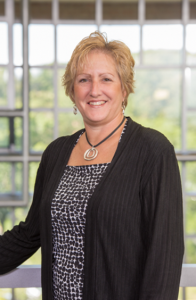
Paula Quatromoni DSc, RD is an Associate Professor of Nutrition and Epidemiology at Boston University and Chair of the Department of Health Sciences. She is also a senior consultant to Walden Behavioral Care, an eating disorder treatment organization in the greater-Boston area.
What is your current position?
I am a tenured Associate Professor of Nutrition and Epidemiology at Boston University and Chair of the Department of Health Sciences. In that role, I am a faculty member, researcher and administrator. I teach Nutritional Epidemiology in our graduate program and an undergraduate summer study abroad course in Italy on the Mediterranean Diet: Food, Culture & Health. I am launching a new course next semester, Eating Disorders Prevention and Treatment. My research program includes population-based epidemiology of diet and chronic diseases, including work on the Framingham Heart Study, community-based child health promotion, and eating disorders prevention and treatment.
My work in eating disorders spans research, education and training, and the provision of clinical services. I am a senior consultant to Walden Behavioral Care, an eating disorder treatment organization in the greater-Boston area. Several of the Walden RDs are alumni of our graduate Nutrition program at Boston University, and Walden offers exceptional training opportunities for our graduate students and dietetic interns to train in eating disorders care across the entire continuum of care from inpatient and residential to PHP and IOP programming. I serve on the senior leadership team helping to guide the Nutrition department forward, providing clinical supervision to the RD team, leading monthly journal club discussions of emerging research that informs evidence-based practice, and conducting research on treatment outcomes.
How did you get started in your career?
In 2004, I had been a Registered Dietitian for 18 years but was relatively new in my faculty position after having finished my doctoral work in 2001. It was then that my work in eating disorders began. I was teaching Medical Nutrition Therapy and was still very much connected to my clinical roots. From this place, I started the sports nutrition consult service at Boston University, serving the needs of Division-1 student-athletes in terms of sports nutrition education and counseling. That partnership uncovered the salient need for eating disorder screening, identification, treatment, referral and prevention. What grew from that was a thriving outpatient practice treating eating disorders in sport. The researcher in me knew I needed to publish this work, and that led to a shift in my scholarly focus when I realized how little the RD’s voice was in the eating disorder literature. We went on to build up the sports nutrition and eating disorder clinical services on our campus over the next 15 years and I have continued to publish on these topics, often with my colleagues in sports psychology.
After an initial brief consultation for Walden in 2015, they asked me to stay on longer-term. I agreed – on one condition – that together, we build an eating disorder treatment program for athletes. Having attended the first Eating Disorders in Sport conference hosted by the Victory Program at McCallum Place in St. Louis, I came away convinced that we needed a program like theirs here in Boston. Together, we built the Walden GOALS Program (https://www.waldeneatingdisorders.com/eating-disorder-treatment-programs/intensive-outpatient/eating-disorder-treatment-athletes/) and before long, we had outcomes to publish showing the positive effects of an athlete-specific ED treatment program.
I am extremely proud of this work and where it has led me in terms of opportunity, visibility for this niche of practice, and its impact on the field, our clients and population health. This work has truly been life-changing.
What advice would you give to someone new to the field?
Be curious and read! Research is the foundation of evidence-based practice. If you learn how to read, think critically, discern and apply research, you are going to be a strong and respected clinician. These are skills learned largely in graduate school. These skills need to be practiced! So read, and read often; discuss research with colleagues; make it part of your commitment to being a lifelong learner. Read books and blogs in the consumer sphere also. Understand the lived experience and the diversity of the lived experience as much as you can. In addition, get as much specialty training as you can through webinars, podcasts, courses, conferences, clinical supervision, etc. Take your first job in an ED treatment center where you have lots of dietitian colleagues and a multidisciplinary treatment team at your side so that you can learn from their wisdom, experience and collaboration. This kind of on-the-job training and supervision is both invaluable and necessary to develop your clinical competence in this challenging niche of practice. Learn to be an effective listener. Your listening (and counseling) skills will endear you to your clients, allow you to build empathy, and cultivate effective and sustainable working relationships with your clients. Above all, practice consistent self-care. This work is demanding and hard but it is also incredibly rewarding.
You can learn more about Paula and the work she does at the links below
Twitter: @terrierpaq
Faculty Profile: http://www.bu.edu/sargent/profile/paula-a-quatromoni-dsc-rd/
Lab Website: http://sites.bu.edu/nutritionalepilab/
Programs in Nutrition at Boston University website: http://www.bu.edu/sargent/academics/departments-programs/health-sciences/ms-nutrition-2-semester/
